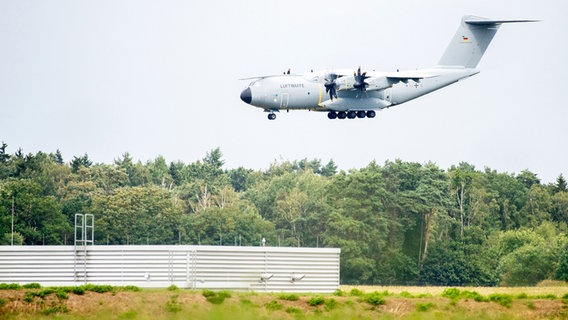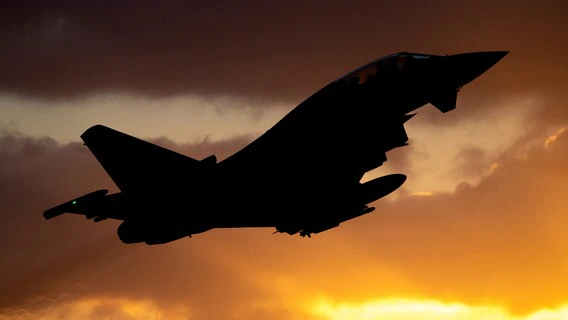As of: 05/03/2022 4:56 p.m.
A Russian spy plane flew over Germany in international airspace over the Baltic Sea. According to the German Ministry of Defense, this alarmed the German Air Force.
Listen to the post
1 minute
Accordingly, the incident took place over the weekend: the Russian engine identified Rügen over the Baltic Sea. As a reaction, the alarm went off on Saturday from the Eurofighters Rostock-Lazy airport. The so-called alarm team from the two German engines flew from Germany with Russian aircraft into international airspace. In the area around Rügen, the Bundeswehr began a week-long training session on Monday.
Federal Ministry of Defense: “Pure regular”
A Defense Ministry spokesman described Rügen as a “clean man.” Does not violate international rules and is not a dangerous situation. A ministry spokesman said the air force had only shown its presence in NATO’s airspace defense. The accumulation of comparable tasks in the Air Force cannot be determined at present. In recent years, NATO member states in Europe have continued to intercept foreign military aircraft. By 2020, the Security Council reports about 350 missions in which Russian military planes were intercepted in front of European airspace.
Expert: The plane was in international airspace
Thomas Vigold, an expert on security and safety policy, has no reason to worry. Wiegold told NDR MV live: “This is really routine – from all sides. It is important to emphasize that the engine did not enter German airspace. “She was in international airspace, and these interceptors flew there on behalf of NATO.”
Additional information
Two alarm groups are always ready
In such cases, according to Vigold, there are two locations in Germany where two Eurofighters ready to take off can climb around the clock. “On the one hand, it’s usually in Whitmond, Lower Saxony. The airport is currently being renovated. That’s why they are now in the lodge near Rostock.” The other location of the alarm group is in Newburgh under Dona. “If there is anything unusual in German airspace or on the border of German airspace, this alarm group will go up. The alarm teams will be on the air for 15 minutes, at any time of the day, in any weather,” Vigold said.
Rügen pre-warning functions are very rare
These interceptors are usually alerted when problems occur on a civilian aircraft – for example due to a radio malfunction and no contact with the pilot. “But when military aircraft of other countries that do not belong to NATO approach German airspace and this NATO air surveillance zone.” According to Weigold, such deployment is rare in the area around Rugan. However, this is very different in the Baltic countries. “Russian planes are routinely inspected by NATO aircraft every day.”
Weigold thinks the Russian spy plane may not be linked to the Bundeswehr evacuation exercise currently taking place in Rugan, but he does not want to dismiss it outright. The “Schnellr Adler” expulsion exercise in Rருகgen was the expulsion of German citizens from an unstable country. “In that sense, it is not a military exercise for traditional military operations. It is a completely different focus. That is why I do not think the Russians were particularly interested in this exercise. Of course, one can not rule it out. The current situation is of interest to both the Russian side and NATO.
Russian aircraft in Danish and Swedish airspace
Similar incidents involving Russian military aircraft have recently occurred in other countries. Following the entry of the Russian spy plane into Danish airspace, the Danish Foreign Ministry summoned the Russian ambassador to the meeting. In addition, a Russian spy plane flew illegally over Swedish airspace. Sweden’s defense minister spoke of a “completely unacceptable incident”. In early March, four Russian warplanes entered Swedish airspace.
Additional information


“Proud explorer. Freelance social media expert. Problem solver. Gamer. Extreme travel aficionado.”





